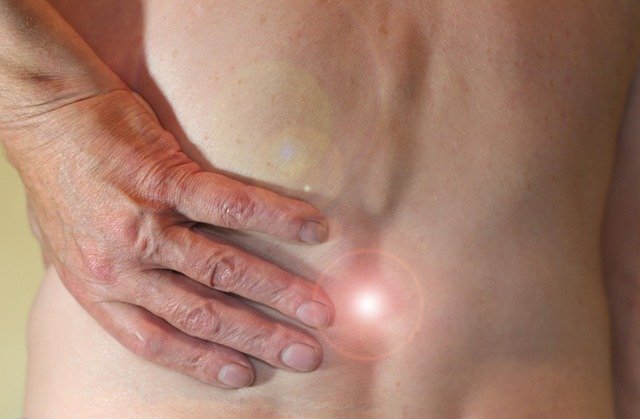10 Early Signs You May Have Kidney Disease Symptoms
Kidney disease is a significant health concern that affects millions of people around the world. It's often referred to as a "silent" disease because symptoms can be subtle and may not appear until the condition is advanced. Understanding the early signs of kidney disease is crucial for timely intervention and management. These early indicators can include changes in urination, swelling, fatigue, and more. Recognizing these symptoms early can lead to better health outcomes and prevent further complications. In this article, we will delve into ten early warning signs that may suggest kidney disease, providing valuable insights for maintaining kidney health.

The human body provides subtle warnings when kidney function begins to decline, but these signals are frequently missed or misinterpreted. Early detection of kidney disease is crucial because it allows for interventions that can slow progression and prevent complications. Many people live with reduced kidney function for years without realizing it, making awareness of early symptoms essential for maintaining long-term health.
Understanding the Early Signs of Kidney Disease
Kidney disease progresses through five stages, with early stages often presenting no obvious symptoms. However, careful attention to your body’s signals can reveal important clues. The kidneys perform multiple vital functions beyond filtering waste, including regulating blood pressure, producing red blood cells, and maintaining electrolyte balance. When these functions become impaired, the effects can manifest throughout the body in ways that might seem unrelated to kidney health.
Chronic kidney disease affects approximately 37 million adults in the United States, yet about 90% of people with the condition don’t know they have it. This silent progression makes recognizing subtle early warning signs particularly important for timely intervention.
Changes in Urination Patterns
One of the most common early indicators involves alterations in urination habits. You might notice increased frequency, especially during nighttime hours, or conversely, decreased urine output. The appearance of your urine may change, becoming foamy, bubbly, or darker in color. Blood in the urine, even if microscopic and not visible to the naked eye, can be an early sign that requires medical attention.
Pain or burning during urination, difficulty starting or stopping the stream, and feeling like your bladder doesn’t empty completely are additional urinary symptoms that warrant investigation. These changes occur because damaged kidneys struggle to filter waste effectively and may leak protein into the urine.
Persistent Fatigue and Weakness
Unexplained exhaustion that doesn’t improve with rest can signal declining kidney function. Healthy kidneys produce erythropoietin, a hormone that stimulates red blood cell production. When kidney function decreases, this hormone production drops, potentially leading to anemia and the associated fatigue.
This type of tiredness differs from normal fatigue because it persists despite adequate sleep and rest. You might find yourself struggling with daily activities that were previously manageable, experiencing weakness in your muscles, or having difficulty concentrating. The fatigue often worsens gradually, making it easy to dismiss as stress or aging.
Itchy and Dry Skin
Skin problems frequently accompany kidney disease as waste products build up in the bloodstream. This accumulation of toxins can cause persistent itching that doesn’t respond well to typical moisturizers or treatments. The skin may appear dry, flaky, or have a grayish color, particularly noticeable in people with darker skin tones.
Some individuals develop a condition called uremic frost, where crystallized waste products appear on the skin’s surface, though this typically occurs in more advanced stages. The itching associated with kidney disease often worsens at night and can significantly impact sleep quality and overall comfort.
Nausea and Vomiting
Digestive symptoms like nausea, vomiting, and loss of appetite can indicate kidney problems as toxins accumulate in the body. This buildup of waste products affects the digestive system, leading to feelings of queasiness that may be particularly pronounced in the morning or after eating.
You might notice a metallic taste in your mouth, bad breath that doesn’t improve with oral hygiene, or an aversion to foods you previously enjoyed. These symptoms often contribute to unintended weight loss and can significantly impact nutritional status if left unaddressed.
| Healthcare Provider | Services Offered | Key Features |
|---|---|---|
| Nephrology Specialists | Comprehensive kidney care | Advanced diagnostic testing, treatment planning |
| Primary Care Physicians | Initial screening and monitoring | Regular check-ups, basic kidney function tests |
| Dialysis Centers | Renal replacement therapy | Life-sustaining treatment for advanced disease |
| Kidney Transplant Centers | Surgical intervention | Comprehensive evaluation and post-operative care |
Additional warning signs include swelling in your feet, ankles, hands, or face, particularly noticeable in the morning or after sitting for extended periods. High blood pressure that develops suddenly or becomes difficult to control can also indicate kidney problems. Some people experience shortness of breath, chest pain, or difficulty sleeping due to fluid retention.
Muscle cramps, particularly in the legs, may occur due to electrolyte imbalances caused by impaired kidney function. Changes in mental clarity, including difficulty concentrating, memory problems, or confusion, can result from the buildup of toxins that healthy kidneys would normally filter out.
Recognizing these early signs doesn’t mean you definitely have kidney disease, as many symptoms can have other causes. However, if you experience multiple symptoms or notice persistent changes in your body’s normal patterns, consulting with a healthcare provider is essential. Early intervention can significantly slow disease progression and improve long-term outcomes.
This article is for informational purposes only and should not be considered medical advice. Please consult a qualified healthcare professional for personalized guidance and treatment.




